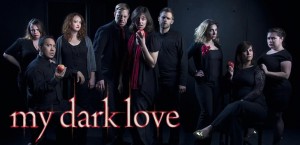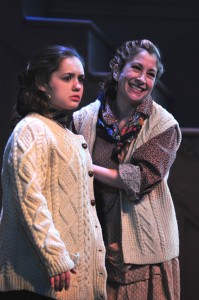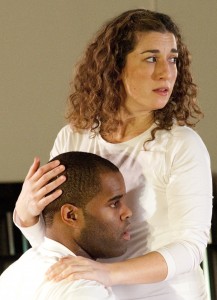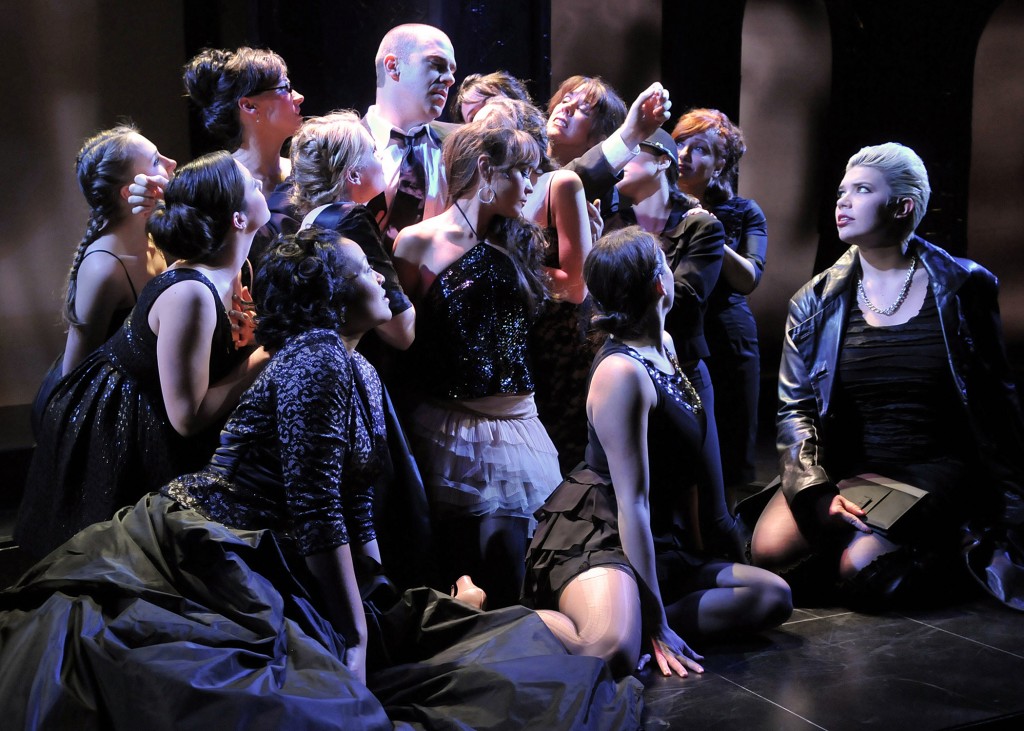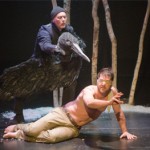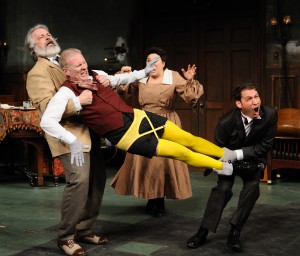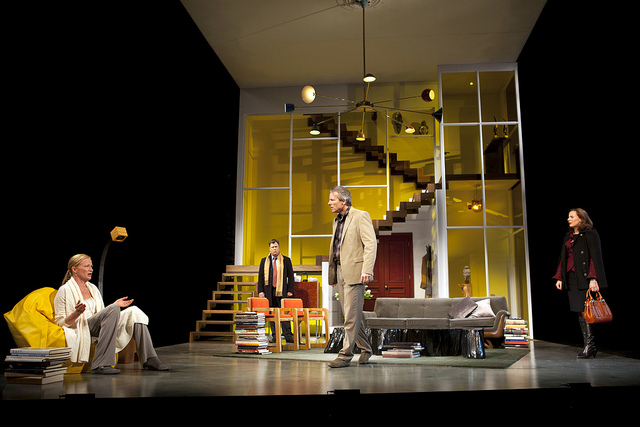
Johanna Day, Brooks Ashmanskas, Stephen Bogardus, and Christy Pusz in Yasmina Reza’s GOD OF CARNAGE. January 5 – February 6 at the BU Theatre. huntingtontheatre.org. Photo: T. Charles Erickson
God of Carnage by Yasmina Reza, Huntington Theatre Company, 1/6/12-2/5/12, http://www.huntingtontheatre.org/season/production.aspx?id=10226&src=t.
Reviewed by Becca Kidwell
(Boston, MA) Yasmina Reza grabs the audience by the jugular and does not let go for an hour and a half. The evening at the Novak’s house in God of Carnage could easily have a voice-over that says “when people stop being polite… and start getting real.” However, unlike The Real World, Yasmina Reza brings a much more believable situation to its drama than any tv reality show. By taking a situation that anyone can relate to and heightening it to the absurd degree, God of Carnage holds a mirror up to our inner demons and leaves us laughing through the pain. Under the direction of Daniel Goldstein, with a talented cast, and a cleverly constructed set, Huntington Theatre Company’s production of God of Carnage is a “must-see” show of the season.
